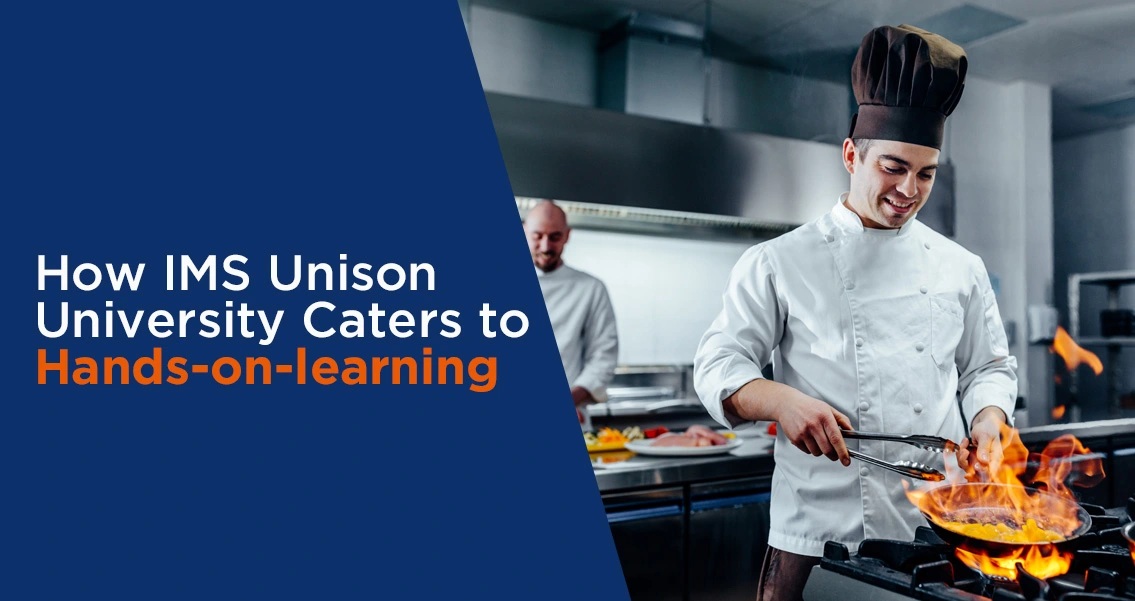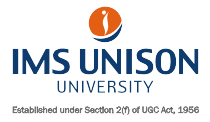IMS Unison University stands at the forefront, championing a hands-on learning approach that transcends traditional boundaries. Our philosophy is rooted in the conviction that the most effective and enduring form of education engages students directly with the challenges and opportunities of the real world. This approach is not merely a teaching strategy but a fundamental belief that learning through doing is essential for academic excellence and professional success.
Hands-on learning at IMS Unison University is an immersive journey into the heart of education. It is where theories and concepts are taught and brought to life through practical application. This learning method transforms our campus into a dynamic laboratory, where every corner, from classrooms to laboratories, from workshops to the great outdoors, serves as a ground for discovery, innovation, and problem-solving. Here, students are not passive recipients of knowledge but active participants, creators, and thinkers directly contributing to their learning processes.
Our commitment to this educational approach stems from a deep understanding of its benefits. Students gain a profound understanding of their subjects by engaging directly with materials, systems, and processes, bridging the gap between theoretical knowledge and its practical application. In this blog, we’ll discuss how we focus on hands-on learning
Hands-on learning is not just a teaching method; it’s a powerful tool for academic development. It bridges the gap between theoretical knowledge and practical application, making learning more engaging and effective. Here are some of the key benefits:
Hands-on learning significantly boosts students' ability to retain and understand complex concepts. When students actively engage in learning through practical exercises, they are more likely to remember the information and understand its applications. This method bridges the gap between theoretical knowledge and practical skills, transforming abstract concepts into tangible experiences. By participating in experiments, projects, and real-world challenges, students can see the relevance of their studies, which not only motivates them but also deepens their understanding of the subject matter.
Development of Critical Life Skills
Beyond academic achievements, hands-on learning is crucial in developing essential life skills. This approach fosters critical thinking, problem-solving, and adaptability—invaluable skills in both personal and professional contexts. As students navigate through hands-on projects and tasks, they encounter unexpected challenges and learn to devise innovative solutions. This process enhances their analytical skills and builds resilience and flexibility, preparing them for the complexities of the real world.
Bridging Theory and Practice
Hands-on learning effectively bridges the gap between theoretical knowledge and practical application. This integration is essential for students to fully grasp the implications and uses of what they learn in the classroom. By applying theories and concepts in real-life scenarios, students comprehensively understand their field of study. This experiential approach ensures that students are knowledgeable, competent, and ready to tackle professional challenges.
Encouraging Active Engagement and Participation
This educational approach encourages students to participate actively in their learning journey. Instead of passively receiving information, students are involved in creating and applying knowledge. This active participation increases engagement and investment in their education, leading to a more fulfilling and enriching academic experience. Moreover, it cultivates a sense of ownership and responsibility toward their learning, driving them to explore, question, and innovate.
The Essence of Hands-On Learning at IMS Unison University
Hands-on learning at IMS Unison University is an immersive experience. It begins with the premise that the deepest, most lasting learning emerges from doing. Our students confront real-world challenges head-on by engaging in hands-on activities and applying theoretical knowledge to practical scenarios. This enhances their understanding of the subject matter and hones critical thinking, problem-solving, and adaptability skills essential in today’s dynamic world.
Our educational model is built around the belief that learning is most effective when students are not merely passive recipients of knowledge but active participants in their education. Through projects, workshops, and interactive sessions, we ensure that every student has the opportunity to learn by doing. This hands-on approach includes media rooms, moot courts, and even hospitality training labs, reflecting our holistic view of education.
Campus Infrastructure: A Hub for Hands-On Learning
The infrastructure of IMS Unison University is intentionally designed to facilitate hands-on learning. Our classrooms, labs, and workshops are more than just physical spaces; they are dynamic learning environments equipped with the latest technology and resources. Here, students can experiment, create, and innovate, pushing the boundaries of their academic disciplines.
State-of-the-Art Laboratories and Studios
At IMS Unison University, our state-of-the-art laboratories and studios are the bedrock of our hands-on learning environment. Equipped with the latest technology and tools, these spaces are designed to mirror the professional settings students will encounter in their future careers.
Interactive Workshops and Seminars
Interactive workshops and seminars are a hallmark of the educational experience at IMS Unison University. We believe in complementing our rigorous academic curriculum with real-world insights and experiences, so we regularly invite industry leaders, accomplished academics, and professionals to lead these sessions. Our workshops cover various topics, from the latest trends in technology and business to creative writing and environmental conservation, providing students with a diverse and enriching learning experience. These workshops and seminars are designed to be highly interactive, encouraging students to engage directly with the guest speakers through Q&A sessions, group discussions, and hands-on activities.
Project-Based Learning Initiative
Project-based learning initiatives are at the core of our hands-on learning philosophy at IMS Unison University. Through these initiatives, we encourage students to apply their knowledge and skills to real-world projects, often with a multidisciplinary focus. These projects are designed to simulate professional scenarios, requiring students to work collaboratively to solve complex problems, develop products, or conduct research.
Conclusion
At IMS Unison University, hands-on learning is more than an educational strategy; it's a commitment to preparing our students for the challenges and opportunities of the future. By integrating practical experiences with academic rigor, we are enhancing our students' academic development and equipping them with the critical life skills needed to succeed in a rapidly changing world.
Our hands-on approach ensures that students leave our university not just as graduates but as innovators, thinkers, and leaders ready to significantly impact their professions and communities. Through our dedication to hands-on learning, we are shaping the future, one student at a time, fostering a generation of individuals who are not only knowledgeable but also capable, adaptable, and driven to make a difference.


